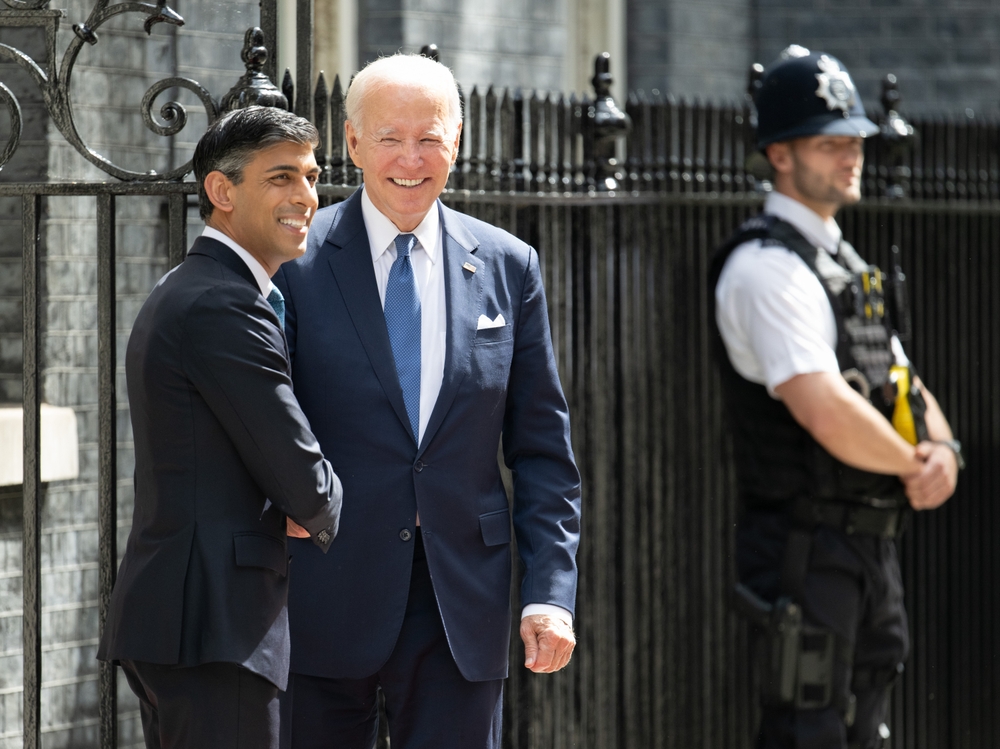
 Serialisation of Red Knight: The Unauthorised Biography Of Sir Keir Starmer, in The Mail on Sunday on 13 June 2021.
Serialisation of Red Knight: The Unauthorised Biography Of Sir Keir Starmer, in The Mail on Sunday on 13 June 2021.
Even now, says a biography the Labour leader tried to obstruct, he’s guilty of overplaying his working-class credentials.
Those who know Sir Keir Starmer well often speak of his decency, integrity, intellect and reluctance to give too much away about himself.
However, Labour’s local elections trouncing in May spurred him to greater efforts on the self-promotion front.
The opening move was an interview on Piers Morgan’s Life Stories, in which he spoke tearfully and movingly about his mother’s life-debilitating illness.
With this biography, I have dug deeper than the ITV programme was able to, and can reveal details of its lasting effects on her elder son.
I will also describe how Sir Keir, a man of many contradictions, who attended a fee-paying school and Oxford University, has, in my view, overplayed his supposed working class credentials when friends and colleagues have confirmed to me that realistically he is anything but.
‘One of Keir’s faults, which has come out from time to time, is his wanting to insist how working class he is when he’s absolutely, plainly not,’ says Professor Bill Bowring, who teaches law at Birkbeck College, University of London.
‘If you’re a QC and former Director of Public Prosecutions, you’ve left your working-class roots far behind. That’s a weakness of his, to go on about it. He’s become very middle class.’
Sir Keir did not want this story to be written. Indeed, it is no exaggeration to say that he actively obstructed it.
While I am the first to accept that everybody is entitled to a private life, I also believe that any politician who presents themselves to the country as the Prime Minister-in-waiting should have a skin thick enough to be untroubled about a study of their character.
By having such a prickly reaction to my decision to write his story, Sir Keir has arguably shown more of himself than he perhaps realised.
Given that most of his career has been spent outside elected politics – he was a barrister from 1987 until 2008; the Director of Public Prosecutions (DPP) from 2008 to 2013; and only became a Labour parliamentary candidate in December 2014 – some probing is justified. So who is the man who would be Britain’s leader?
His mother Josephine’s path through life was far from straightforward. Aged 11, she was diagnosed with juvenile idiopathic arthritis, also known as Still’s Disease, after the English paediatrician George Still who first described it in 1896.
This rare illness is characterised by fever and a rash as well as joint pain, and it can have a profoundly destabilising effect on those who live with it. Sadly, Josephine was not spared the worst of what the disease is capable of inflicting.
According to the eulogy given at her funeral in 2015, she was quickly taken under the wing of the consultant who was in charge of her care, Dr Kenneth Maclean.
It was he who told Josephine and her husband Rodney on their wedding day in 1960 that if they intended to start a family, the unknown side effects of the pioneering cortisone treatment he was giving her meant they should not wait.
Rodney, who worked as a toolmaker in Ashford, Kent, and his bride took the advice seriously. In June 1961, Josephine gave birth to their eldest child, Anna. On September 2, 1962, Keir was born.
It is often stated as fact that he was named after Keir Hardie, a founder of the Labour Party, yet Starmer admitted in an interview in 2015 that he had no evidence for this because he had never discussed it with his parents.
Still, this idea has stuck and he has never disabused anybody of it. Anna and Keir were followed in March 1964 by twins Nicholas and Katherine.
Shortly after Keir’s birth, the family settled in a three-bedroom semi-detached house close to the Surrey commuter town of Oxted. Diana Watson, who is the same age as Keir, says she remembers visiting him at home about 50 years ago. ‘Their house was very modest,’ she says. ‘The Starmers were unpretentious. They were normal people.’
Another neighbour adds: ‘The Starmers were staunchly Labour. At election times their house would be plastered with Labour posters.’
Records show that among Josephine’s ancestors was an attendant in an asylum, a printer, a miller, a labourer, a servant and a laundress: Rodney’s include a gamekeeper, a wheelwright and a mechanic.
After the move to Tanhouse Road in Oxted, Rodney continued to work in the toolmaking trade but, due to his son’s ambiguous explanations, there has always been a certain amount of confusion as to his employment status.
In March 2018, Starmer told the BBC’s Nick Robinson that his father ‘was a toolmaker working in a factory and working every hour, basically’. The following year, he told the BBC Radio 4 Today programme that his father ‘worked in a factory’ as a toolmaker.
The inference that listeners might have drawn is that Rodney Starmer was employed by somebody else. Yet the available evidence suggests that this was not the case.
For reasons best known to himself, Keir Starmer did not use any of these opportunities to explain that his father, in fact, ran his own business, the Oxted Tool Company.
As a Companies House representative has said that no records of the Oxted Tool Company exist in its files, it is difficult to assess how successful Rodney Starmer’s business became and indicates that he may have remained a sole trader – as opposed to running a limited company – throughout his working life.
As a skilled manual worker who was self-employed and who owned a house (albeit with a mortgage), it is arguable that Rodney would be thought of by some social scientists as being a cut above other toolmakers who were employed.
None of this would matter in any way, of course, but for the fact that Keir Starmer has not been totally explicit about it when asked.
Perhaps it would be most accurate to say that Starmer’s background was neither working class nor ‘posh’, as some commentators have attempted to prove, but was instead closer to what sociologists would once have called petit bourgeois. This French term is akin to lower-middle class.
In 1974, Keir won a place at Reigate Grammar School, which would become independent during his time there. Those who were already pupils were allowed to continue, with their fees paid by the local council.
Starmer’s friends there included Quentin Cook, subsequently known as Norman and by his DJ name Fatboy Slim. They took violin lessons together, though Cook left Reigate Grammar aged 16.
Music remained a very important part of the life of Starmer, who also played the flute, piano and recorder. He was a good enough flute player to secure a place at the prestigious Junior Guildhall School of Music.
Every Saturday morning, at the insistence of his parents, he would travel to London for lessons by staff who played in professional orchestras.
It is noteworthy that when the Daily Mail discovered in September 2009 that Starmer had omitted to mention Reigate Grammar School in his Who’s Who entry, it concluded that this was a piece of chicanery which reflected badly on his character. By then, he was the Director of Public Prosecutions.
Like Boris Johnson and Gordon Brown, adversity drove him on
As with the questions raised about what Starmer has had to say regarding his father’s profession, the fact he attended a grammar school which became a private school should not matter to anybody. A more interesting point is why he should feel any sensitivity about it.
Whatever the explanation, it is striking that, after the Mail story, he updated his Who’s Who entry.
As a result of Josephine Starmer’s illness and Rodney’s unsociable working hours, there were few adult visitors to the house during Keir’s childhood.
The family lived under the appalling fear of Josephine needing to be admitted to a high-dependency unit at any time.
Such was Rodney’s devotion to his wife that he stopped drinking alcohol so he would be able to accompany her to hospital at all hours of the day or night if need be. There, he would remain with her, sleeping in a chair if necessary.
Keir has even recalled a time, when he was aged 13 or 14, and his father rang him from a hospital to warn: ‘I don’t think your mum’s going to make it.
Will you tell the others?’ Such unwanted and painful responsibility, placed on his shoulders at a young age, forced him to grow up quickly and perhaps to take life more seriously than most of his peers. Inevitably, it left its mark on his personality as well.
‘People liked him,’ says his schoolfriend Andrew Sullivan. ‘He was quite popular. But he always seemed a little angry about the world.’
‘He’s quite an austere man, and Parliament is not a very austere place,’ says former Tory Attorney General Dominic Grieve, who worked closely with Starmer during his time as DPP.
Others note that Starmer is warmer in private than his often rather solemn public persona. ‘Off-duty he’s quite light-hearted,’ says one who knows him in the Commons.
‘But he is a serious guy. He wouldn’t have four or five pints with the whips in the bar. He’d want to get home – his family, his duties to his kids. He’s not an absent parent.’
AS the first person in his family to attend university, Starmer’s parents were adamant that Keir should not waste the opportunity.
Originally he had expressed an interest in studying politics. But in a sure sign that Rodney and Josephine expected their son to gain a degree in a subject that would equip him to enter a profession after he graduated, they insisted he should apply to study law instead at his chosen university of Leeds.
Starmer acquiesced, despite his legal knowledge being minimal when he began the course.
Revealingly, the student news-paper Leeds Student contains an anonymous message for Starmer under the Personal section dated January 27, 1984.
It reads: ‘Keir Starmer, king of middle class radicals.’
This was almost certainly an in-joke between friends but, if nothing else, it proves that ever since he was 21 years old this former Surrey grammar school boy has been fending off accusations of being more bourgeois than he would care to admit.
Starmer then went on to St Edmund Hall, Oxford, to study for a postgraduate law degree in 1985 at a time when the city was awash with future front-ranking politicians including David Cameron, Michael Gove, Boris Johnson, Ed Balls and David Miliband. It is known that he and Miliband became friendly during this period.
An idea has taken hold that when Keir Starmer moved to London a year later to pursue a legal career, he lived above a brothel. This is not quite true. To be strictly accurate, it would appear that he rented a room in a flat above a sauna.
In August 1985, the year before Starmer’s tenancy, the owner of a business based at the same address was found guilty at the Old Bailey of living off the earnings of prostitution.
The premises had apparently ceased to be a house of ill-repute by the time Starmer moved in. According to some accounts, though, it remained a fairly insalubrious place. In 1988, he was joined there by, among others, his then girlfriend Angela O’Brien, whom he had met at Leeds.
They would remain together for nearly a decade, buying a flat together. But by 1997 she had moved out, although it is understood that Starmer remained in the property until it was sold later that year.
By then he was almost 35 years old and had struck up a relationship with fellow barrister Phillippa Kaufmann.
Several people have claimed he had ‘other girlfriends’ besides O’Brien and Kaufmann. Intriguingly, they note that he has always been careful about remaining on good terms with these women. O’Brien and Kaufmann both went on to marry colleagues of Starmer.
In March 2002, Starmer became a QC at the relatively early age of 39. A few months later he was mentioned in an Observer profile piece headlined The New Legal Crusaders, which focused on a group of ambitious young lawyers.
This article is noteworthy for the following sentence: ‘Among them was Ben Emmerson, the dashing young advocate and colleague of Cherie Booth at the fashionable Matrix Chambers.
‘Admirers say that if Colin Firth’s human rights lawyer in the film Bridget Jones’s Diary wasn’t based on Emmerson, then it should have been.’
These words solve a mystery which has portrayed Starmer in a very useful and flattering light for many years. Starmer always seemed happy not to disabuse people of the notion that he was the inspiration for the dashing Mark Darcy, who was created by author Helen Fielding. The fact is that he never was.
What appears to have happened is that in April 2012, a decade after the Observer article, a Sunday Times journalist interviewed Starmer.
‘Just before my interview with Keir Starmer, the director of public prosecutions (DPP), someone tells me that the chisel-jawed former human rights lawyer was the inspiration for Mark Darcy,’ she wrote at the time.
‘I am not sure if this is true.’ From that point on, other journalists decided that it was true and the myth held. Starmer never denied it, no doubt relishing the touch of glamour it gave him.
For example, during the Labour leadership contest, when ITV News asked him if the Darcy character was based on him, he answered: ‘Everybody asks me this question when they should be asking [Fielding] the question because she knows the answer and I don’t.’
Finally, it was Fielding herself who explained on Desert Island Discs last July that Starmer played no part in her thinking up Mark Darcy.
While this may seem to be a trivial matter, one friend of Starmer says it is rather revealing.
The Starmer whom this person knows apparently paid attention when members of the opposite sex said he was good-looking.
‘What’s interesting is he knows full well he wasn’t the model for Mark Darcy,’ says the friend. ‘His answers tended to leave the impression that it was true.’
Keir Starmer is often described as being intensely ambitious, yet it is arguable that this trait is at least in part a consequence of the hopes and dreams of his family.
The evidence for this comes from a round-robin letter written in December 2014 by Starmer’s father, Rodney. In it he expressed to friends his delight that his son had just been chosen as Labour’s prospective parliamentary candidate in the safe Labour seat of Holborn and St Pancras.
‘We are very pleased and wish him well,’ Rodney wrote. ‘My dad, Bert, said many years ago that one of the Starmers should be an MP.’
Who can say why Starmer’s mechanic grandfather seemed fixed upon a family member making it to the House of Commons? But Keir will no doubt have known about this comment.
It was a huge personal tragedy for Starmer that his mother did not live to see him become an MP in the General Election of May 2015. Very sadly, she died less than two weeks before polling day.
Now, six years later, many analysts are agreed that Starmer’s position on the political spectrum is difficult to define.
Immediately after he became leader, James Schneider, Jeremy Corbyn’s former head of strategic communications, wrote: ‘Keir Starmer is not a ghoulish neo-liberal, reactionary authoritarian, or a lover of war but he isn’t a socialist.
‘Hard to place, he appears to be on the progressive end of social reformism. He has no strong allergy to being near socialist ideas but they aren’t to his taste or style.’
For his part, Starmer has often referred to himself in public as a socialist.
Peter Mandelson and Alastair Campbell like to remind the Left that Labour’s record in the past 11 General Elections reads ‘lost, lost, lost, lost, Blair, Blair, Blair, lost, lost, lost, lost’.
The thing about Blair was that he relentlessly put voters’ priorities ahead of his party’s and made sure he won the battles that ensued.
It is time for Starmer to follow this example.
‘Let Reagan be Reagan’ was the mantra of White House allies who felt the then US President was at his best when he followed his instincts.
‘Let Starmer be Starmer’ may turn out to be terrible advice but that, for what it’s worth, is mine. If what then comes to the fore is a radical Left-wing lawyer, voters can at least decide if that’s what they want.
But if his true aim, tempered by experience, is to turn Labour back into a party that can be trusted with government, he must fight for it every day and face down anyone who stands in his way. After all, he has nothing to lose.
- Abridged extract from Red Knight: The Unauthorised Biography Of Sir Keir Starmer, by Michael Ashcroft, published by Biteback on August 19 at £20.


